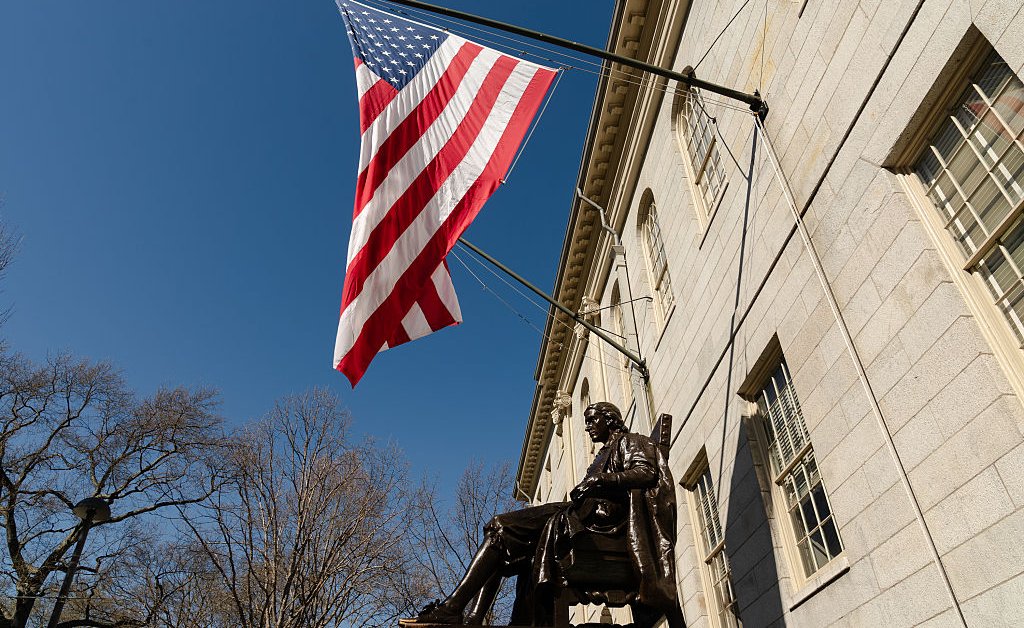Now Reading: Harvard Teaches U.S. Leaders a Valuable Lesson
-
01
Harvard Teaches U.S. Leaders a Valuable Lesson
Harvard Teaches U.S. Leaders a Valuable Lesson

President Trump’s unexpected criticism of higher education sparked a strong response from Harvard and more than 100 other institutions. The incident underscores the importance of not yielding to Trump’s attacks as a long-term strategy. Several top law firms initially appeared to comply with Trump’s demands, only to discover that he was backtracking on agreements and making further demands. Attempts by schools like Columbia to meet Trump’s demands also failed. History shows that appeasement is not effective when seen as a sign of weakness or surrender.
The recent actions by the Trump administration against American colleges and universities were highlighted by demands made to Harvard in a letter dated April 11. Harvard’s refusal to comply led to the freezing of $2.2 billion in federal research funds and threats to its tax-exempt status. The attempt to take control of a private institution has galvanized support for the autonomy of higher education, a crucial sector for the nation’s global competitiveness. Criticism of Trump’s actions extends beyond academia, including from unlikely sources like The Wall Street Journal Editorial Board, which criticized Trump’s overreach in trying to influence Harvard. Even staunch critics of Harvard like FIRE condemned Trump’s demands and urged the university to stand firm.
Trump’s attacks on Harvard and the university’s defiance may be shifting public opinion in favor of the school, according to a survey. Alumni pride and donations to Harvard have increased following Trump’s criticisms. Arbitrary assaults on higher education not only stifle intellectual creativity but also undermine the valuable contributions universities make to American society, economically and culturally. Higher education plays a significant role in U.S. global competitiveness and economic prosperity, contributing to trade surpluses and attracting billions of dollars through international student tuitions.
American universities have also played a critical role in making groundbreaking discoveries and improving the average lifespan of Americans. Harvard, a prominent educational institution, has faced criticism in recent years but has earned praise for standing up against the Trump administration’s demands. Harvard’s decision to reject Trump’s demands, led by President Alan Garber and supported by the board chaired by Penny Pritzker, marks a pivotal moment. Harvard’s defiance against authoritarianism coincides with the anniversary of Paul Revere’s ride, symbolizing a stand against tyranny.
This battle is challenging for Harvard, but it is not fighting alone, as civil society leaders unite to defend freedom of expression, intellectual inquiry, education, and research. It is crucial for those who value the contributions of U.S. universities to speak out against attempts to undermine higher education. This conflict underscores the importance of standing firm in the face of threats to academic freedom and institutional autonomy.






